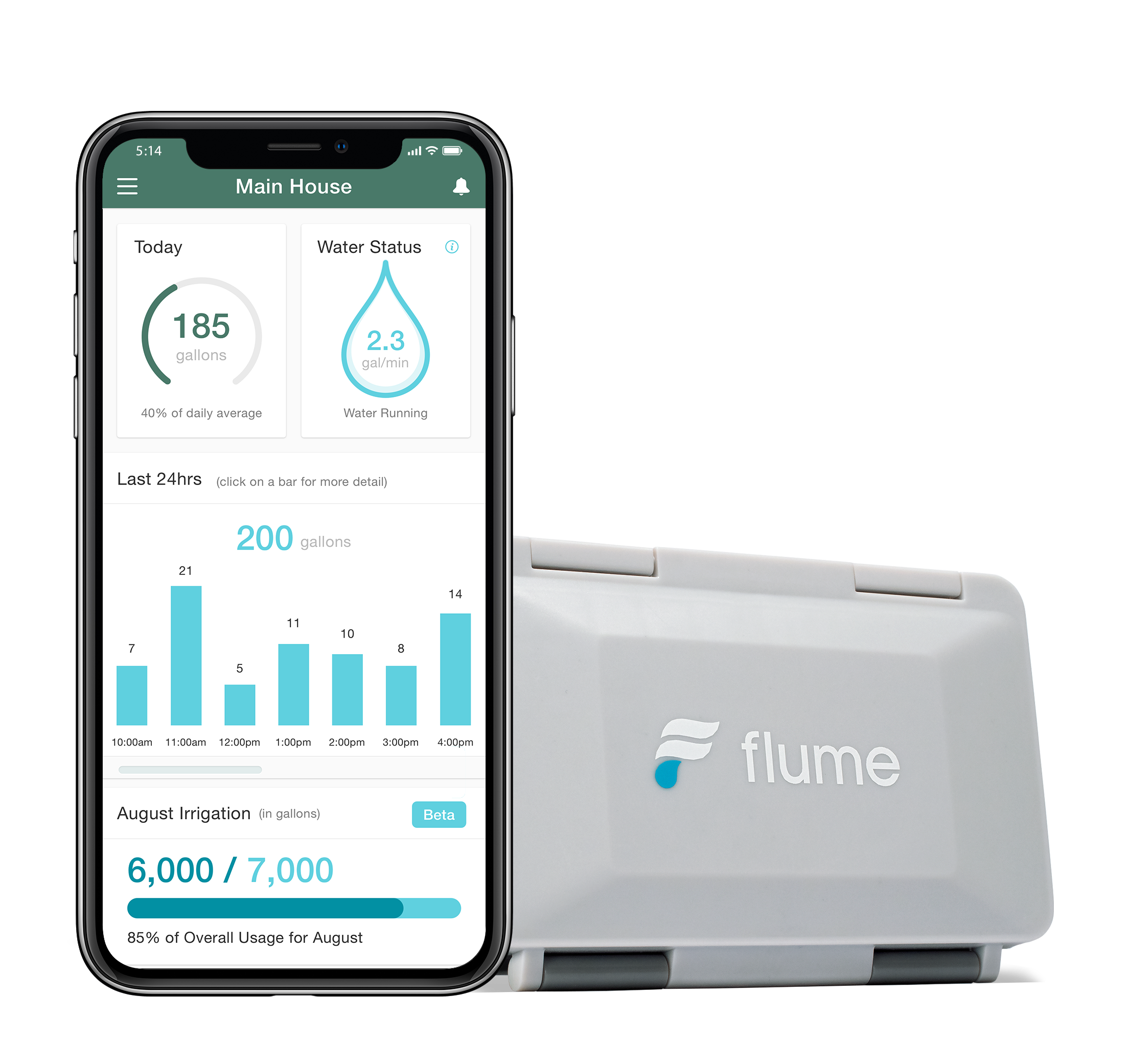San Diegans are very proud of our beaches, rivers, lakes, and lagoons, and we have a responsibility to protect these vital areas. We can do that through responsible use of water, preventing polluted rainwater runoff from entering our natural waterways, and instead, redirecting fresh rainwater to our plants that need it most.
How you can make a daily conservation effort
Prevent leaks at home
Flume Smart Home Water Meters offers you a brand new look at your water by showing you exactly how much water EVERYTHING in your home uses! 70% of Flume users find leaks within their first month of using the tool! Get directly alerted of abnormal (or accidental) water usage to give you peace of mind whether you’re at home or away with completely customizable leak alerts.
Order with the link below for a $20 discount through Solana Center. Additional rebates may be available through your water district. Check availability by selecting "Flow Monitor Device on Utility Meter" under the "Select Device" section here.

Harvest Rainwater
Catching rain in barrels not only saves water for use in gardening and landscaping but also prevents rainwater from draining to the ocean and picking up contaminants along the way.
Learn more about rainwater harvesting, or purchase a rain barrel online for pick up at Solana Center or special event locations around the County (see purchase page below for detials).
Wasted Food = Wasted Resources
Many resources go into growing, processing, and transporting the food we eat including land, labor, water, fuel, and energy.
- Every year in the United States, wasted food consumes...
- 5.9 trillion gallons of fresh water.
- 140 million acres of cropland
- 24% of landfill space in the U.S.
Loss and waste occur at each stage of the supply chain, but the majority happens at consumer-facing businesses and in homes. Each of us can make an effort to prevent food waste by shopping smart, using everything we do buy, and getting creative in the kitchen.
